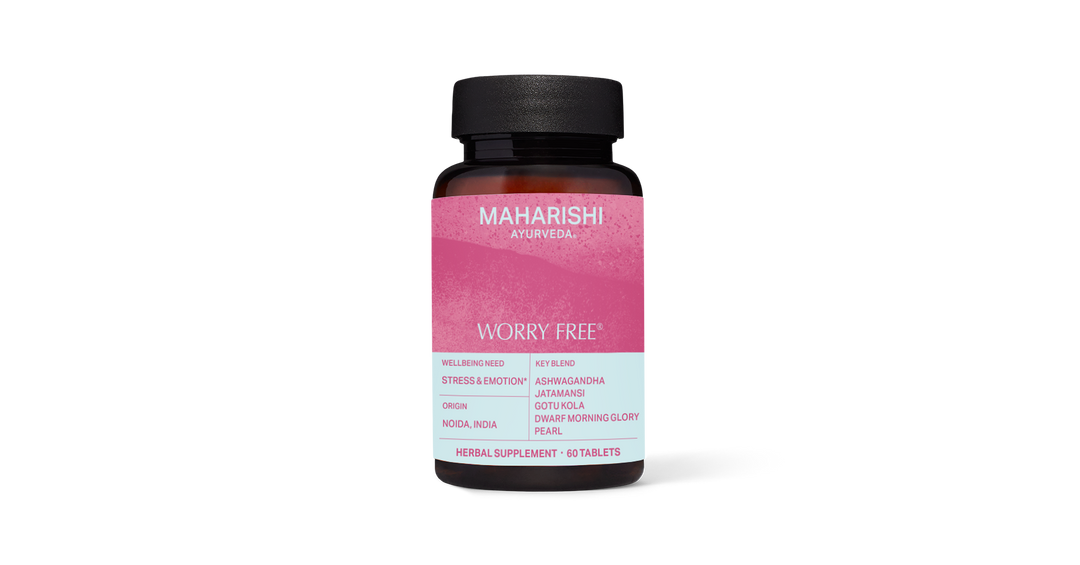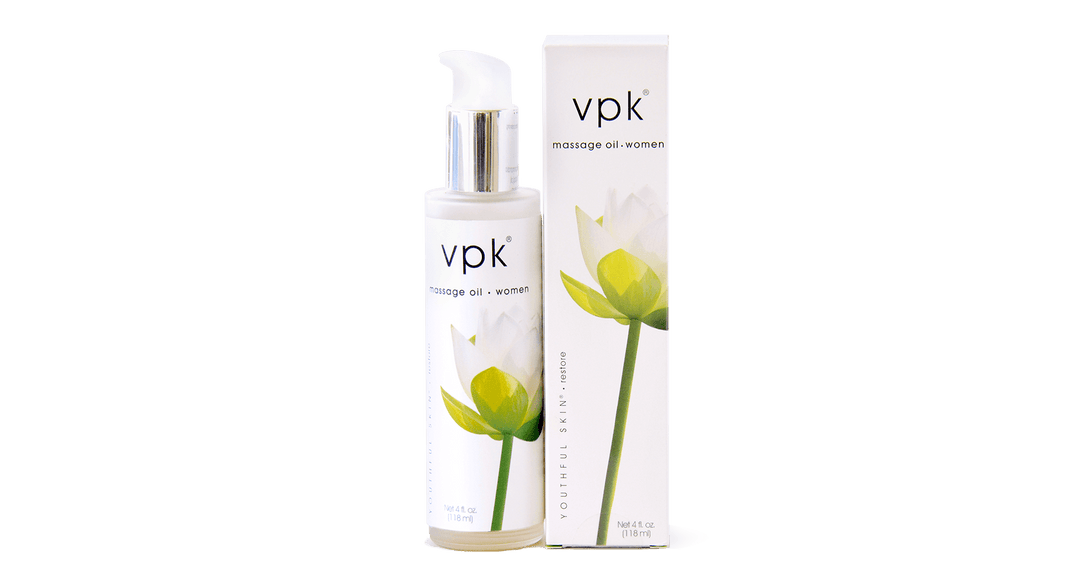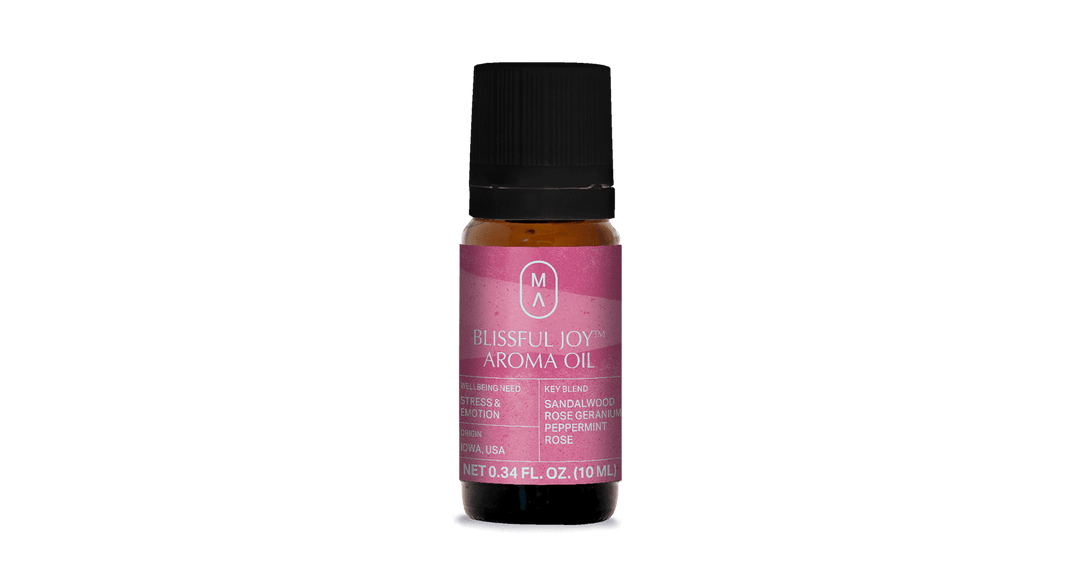Dr. Kumuda Reddy has been practicing medicine for over 25 years. Originally trained as an anesthesiologist, she is currently the Medical Director of the Maharishi Vedic Center in Bethesda, Maryland.
Dr. Reddy is the author of several books, including Forever Healthy and For a Blissful Baby: Healthy and Happy Pregnancy with Maharishi Vedic Medicine. We asked her to speak about the role of Maharishi Vedic Medicine in helping mothers have a comfortable, healthy pregnancy.
Q: How does Maharishi Vedic Medicine differ from the conventional approach to pregnancy?
A: In conventional medicine, the mother is given a pregnancy test and also the blood pressure, pulse rate, and weight are checked. Then she is advised to eat a generally healthy diet and to take prenatal vitamins. However, this prenatal diet doesn't give any specific recommendations for maintaining a happy and healthy pregnancy.
In Maharishi Vedic Medicine, it is understood that pregnancy is a time when everything the pregnant mother tastes, sees, touches, hears, and smells should be nourishing to the mother and child. There are very specific recommendations to bring about a state of balance in the consciousness, mind, body, behavior, and environment of the pregnant woman.
Q: What is the ideal diet for an Ayurvedic pregnancy?
A: The Vedic texts recommend sattvic foods, which means pure, easily-digested foods that nourish the dhatus (tissues) of the mother and the unborn child. These include foods such as milk, rice, wheat, ghee (clarified butter), fresh vegetables, fruits and grains. Sattvic foods do not cause constipation or indigestion, and they create a more settled state of mind.
These foods help the mother enjoy ideal health and vitality, and also help with the growth of the baby. Maharishi Ayurveda Organic Vata Churna is a convenient way to add Vata-balancing spices to your diet. Organic Vata Tea or Worry Free Tea can be sipped through the day to help balance the mind and emotions.
Q: What other techniques bring balance to the mother and unborn child?
A: Techniques such as abhyanga, the Ayurvedic oil massage, are recommended for the mother. Mothers who do this once a day, on arising, find that they feel more evenness, more balance, more energy throughout the day. The massage and other techniques balance Vata dosha (the mind-body operator that governs movement and many mental functions), so the mother feels more steady, more even, less anxious. I recommend the Youthful Skin Massage Oil for Women, or the Moisturizing Massage Oil. In the summer, replace Moisturizing Massage Oil with Soothing Massage Oil.
In Maharishi Vedic Medicine it has been recognized for thousands of years that the mother must be very happy and feel harmony with nature during pregnancy. For this, various strategies have been recognized. One is the social environment, which means that the family tries to keep her happy, especially the husband.
The Ayurvedic tradition says, "Let her hear good news, let her hear harmonious music, let her eat sweet foods, let her attend monthly celebrations to always keep her uplifted and nourished”. Aromatherapy with an uplifting aroma blend such as Blissful Heart Aroma Oil can be helpful.
Q: What happens if the mother isn't happy?
A: Modern research shows that if there is grief, sorrow, or depression, those negative emotions definitely affect the growth of the baby. The baby could be born with lower birth weight, or the baby could be less happy. If the mother is very stressed, this can also contribute to a low-birth-weight baby.
When the mother is not as happy or settled during pregnancy, the newborn child experiences more colic, more crying, more sleep problems. In extreme Vata imbalance, the child might develop dry skin, hyperactivity, or musculoskeletal problems while growing.
The time to nip imbalances in the bud is during pregnancy, as it is much easier to correct it then. And most importantly, it is imperative to prevent so much suffering.
Q: What other techniques does Ayurveda recommend for pregnancy?
A: The Transcendental Meditation® technique is a profound way for pregnant mothers to reduce stress, experience deep rest, and bring balance to all the doshas. When there is balance in the nervous system of the mother, the baby spontaneously grows in a very happy and healthy way.
If the mother is not calm and rested, there could be discomfort as the baby grows, or the child could be overly active in the womb. Or other complications could develop, such as fluid retention, high blood pressure, or spotting during pregnancy.
The idea of Maharishi Vedic Medicine is to prevent these problems and to bring the holistic value of life to the mother and child.
Q: It sounds as though Maharishi Vedic Medicine considers pregnancy to be a serious responsibility.
A: Yes, the newborn is such an important divine creature, such a precious individual. You don't want to compromise his capacity for growth, his capacity for perfection, or his capacity to contribute to the world. The ideal of Maharishi Vedic Medicine is to develop perfect individuals, and thus to create a perfect and ideal society.
The ideal is to make every baby a cosmic baby who is in tune with nature, who will bring perfection and happiness to the world. In Maharishi Vedic Medicine the health of the unborn child should never be compromised. The mother must take care of herself, and in taking care of herself, she takes care of the child.
Q: What is the unique contribution of Maharishi Vedic Medicine to the postpartum mother?
A: In Western medicine, the typical mother gives birth, stays in the hospital between 24 and 48 hours, and then is on her own. In modern medicine we do recognize that it takes six weeks for tissues to recover from childbirth, and consequently the mother usually returns to the hospital for a six-week check-up. But otherwise, there is literally no support for the healthy mother who does not have a medical condition.
In contrast, Maharishi Vedic Medicine focuses on the revitalization of every mother through specific diet, rejuvenation techniques, and rest. There is a recognition in Maharishi Vedic Medicine that even the healthiest of mothers can experience enormous postpartum fatigue and stress.
A first-time mother, especially, is facing the transition into motherhood, with all of its tremendous responsibilities and joys, just when she feels most exhausted and depleted.
The principle of Maharishi Vedic Medicine is that if you help the mother rejuvenate, if you "mother the mother," then she can care for her newborn with joy and ease instead of feeling exhausted and overwhelmed. She can be a better mother.
Q: What are some of the problems that can crop up if a mother doesn't receive the rest and care she needs?
A: Postpartum depression and fatigue are well known in modern life, and the traditional treatments of Maharishi Vedic Medicine are designed to avoid this.
If the recovery is not complete, if the mother is left feeling fatigued and exhausted, then this unfortunate state becomes the ground of future disease and discomfort. When the body is not recovered properly, it can manifest as chronic fatigue, stress, hemorrhoids, irritability, depression, digestive problems, and other chronic disorders.
Many intelligent women are able to trace their chronic health problems to the time they gave birth. Often women tell me, "This whole condition — feeling unhappy and tired all the time, never feeling well — started with the birth of my child.
Maharishi Vedic Medicine prevents this kind of crack from developing in the physiology. And, in fact, many mothers who follow these simple procedures say that they feel even better than before they were pregnant.
Q: Can you describe some of the treatments?
A: First of all there is the diet. The mother's digestion is usually very weak after giving birth. Foods must be easily digestible, yet very nourishing. Rice, warm vegetable soups, milk and ghee (clarified butter) are all part of the postpartum diet. Yet it is very specific, because certain Vata-producing vegetables will cause gas, and will show up in the baby as colic. So those foods must be avoided.
Then there is the environment. The mother needs lots of rest, so ideally other family members or neighbors should cook her meals and clean her home for the first six weeks. The mother and baby need a quiet, unstimulating, protected environment during the first few weeks after the birth of the baby.
Q: What does Maharishi Vedic Medicine offer the modern working mother?
A: In my own patients I see that many women have to return to work after six weeks, so it's very important for the woman to be on her feet to take care of the child and family as needed before she returns to work. Maharishi Vedic Medicine is the only thing I know of to do this.
Q: How does this program of nurturing the mother affect the baby?
A: The connection between mother and baby is very strong. Therefore, the mother's diet, mood, and emotions affect the baby. If the mother is feeling well, the baby feels well. It's so important that the mother be happy and healthy, for then the baby will be happy and healthy, and will have the best possible start in life.
Ayurveda places great emphasis on the health and wellbeing of the mother before and after pregnancy, which then gets passed to her baby. Start nurturing your health now with helpful herbs, topical products and information on Ayurvedic fertility—holistic support for women’s health.
(Always consult your Ayurvedic practitioner or physician before starting any new supplement routine during pregnancy).
© 1999, 2021 Maharishi AyurVeda Products International, Inc. (MAPI). All Rights Reserved. MAPI does not provide medical advice, diagnosis or treatment. These statements have not been evaluated by the Food and Drug Administration. Products are not intended to diagnose, treat, cure or prevent any disease. See additional information.






